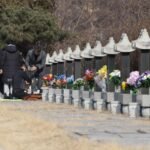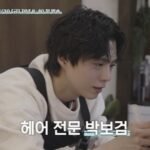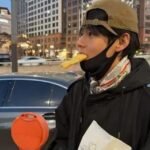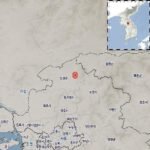Shin Yoo-yeol, executive director of the Future Growth Office at Lotte Corporation (from left), Lotte Duty Free CEO Kim Ju-nam and Lotte Holdings CEO Genichi Tamatsuka hold a ribbon-cutting at the renewal opening ceremony on October 16
South Korea’s Lotte Duty Free reopened its Tokyo Ginza Store in Tokyu Plaza Ginza on Wednesday after a complete renovation.
This is the company’s first renewal in eight years.
The store, which originally opened in 2016 after obtaining Tokyo’s first downtown duty-free license, occupies the eighth and ninth floors of Tokyu Plaza Ginza, near Ginza Station.
The reopening ceremony was attended by Shin Yoo-yeol, son of Lotte Group Chairman Shin Dong-bin and head of Lotte Corp.’s future growth division, along with Lotte Duty Free CEO Kim Ju-nam and other executives.
Kim unveiled a hybrid strategy for the store, with the eighth floor operating as a tax refund store, allowing Japanese locals to receive tax refunds on purchases, and the ninth floor functioning as a duty-free store for international tourists.
The eighth floor features Korean fashion retailer Musinsa, showcasing brands like Covernat, Stand Oil, Glony, and Grove, along with approximately 3,000 popular character goods, including Bellygom, Zanman Lupee, and One Piece.
On the ninth floor, the House of Suntory opened for the first time in the Kanto region, offering Suntory single malt whiskies such as Yamazaki, Hibiki, and Hakushu. The floor also includes Japanese cosmetic brands like Ipsa, NARS, and Pola.
Lotte Duty Free has been focusing on new growth opportunities beyond duty-free retail, including the launch of its B2B platform KATZ in August, which connects K-fashion brands with global buyers.
By Jae-Kwang Ahn
ahnjk@hankyung.com















